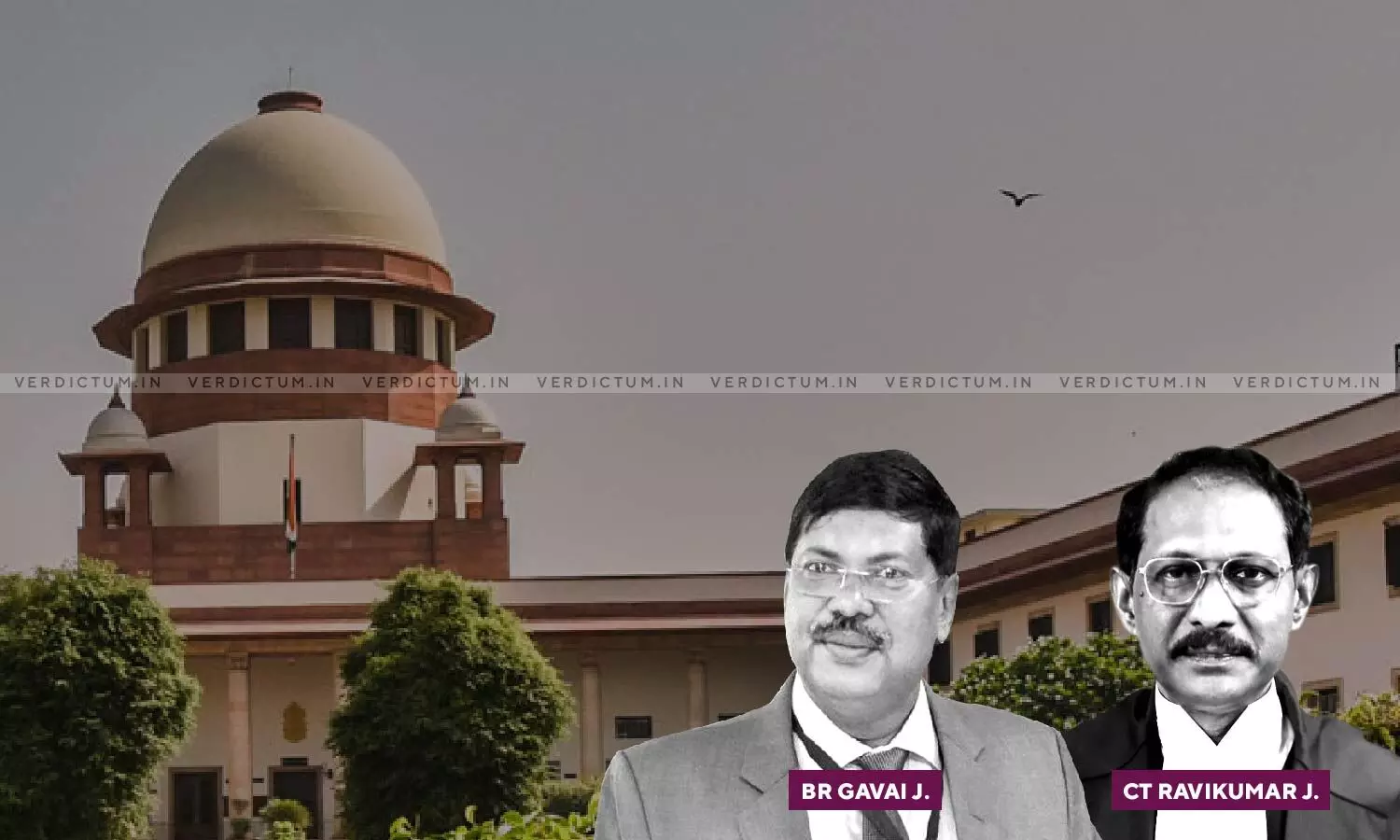
Since Extract Legally Establishes Contents Of Original Sale Deed, Same Should Confer Right Over Entire Property: Apex Court
 |
|The Supreme Court has noted that since an Extract legally establishes contents of the original sale deed, the same should confer right over the entire property.
The Court was dealing with a civil appeal filed against the judgment passed by the Madras High Court, Madurai Bench whereby it reversed the concurrent judgments of the courts below decreeing the suit with regard to the title and possession of the entire suit property and confined the appellant’s entitlement to title and possession to 96 cents purchased under Ext. A5 Sale Deed.
The two-Judge Bench of Justice B.R. Gavai and Justice C.T. Ravikumar held, “The trial Court, therefore, rightly held that the oral and documentary evidence of the appellant/plaintiff clearly established that till 1959 the suit property belonged to Puliyankaladi and thereafter, the appellant/plaintiff purchased the property from Puliyankaladi as per Ext.A5, in the circumstances mentioned thereunder. Since Ext.A5 legally establishes the contents of the original sale deed No.1209/1928 of SRO, Andipatti the same should confer the right over the entire property covered by Exts.A1 and A5 to the appellant/plaintiff.”
The Bench found no ground to sustain the reversal of the concurrent judgments of the courts below by the High Court in exercise of the power under Section 100 CPC, as no ground justifying such exercise existed in the case.
Advocate S. Mahendran appeared on behalf of the appellant while Advocates M.P. Parthiban and T.R.B. Sivakumar appeared on behalf of the respondents.
Brief Facts -
The appellant had filed a suit seeking declaration that the entire suit property belonged to the appellant and for a consequential prayer for permanent injunction against the respondents. As per the appellant’s case, a mortgage deed for the loan was executed in respect of the suit property and the default in repayment of loan amount made the vendor’s father to file a suit which was decreed in his favour. Hence, the property was sold to him and then he executed another mortgage deed which was redeemed by the appellant. Ultimately, the appellant purchased the suit property as per the sale deed, Andipatti and since then, he was in its possession and enjoyment.
The respondents were strangers having lands on the southern and northern sides of the suit property who demanded the appellant to sell the property to them and on being refused, they turned inimical to him and started disturbing his peaceful possession and enjoyment of the property. They along with some others attempted to trespass into his property but it was thwarted with the help of co-villagers. The respondents filed written statements in the suit mainly refuting the averment that the entire suit property belonged to the vendor’s father and that it was incorrect and false. The Trial Court decided the suit in favour of the appellant and the First Appellate Court refused to interfere with the decision. However, the High Court allowed the second appeal of the respondents aggrieved by which the appellant approached the Apex Court.
The Supreme Court in view of the facts and circumstances of the case observed, “… the High Court held that the Ext.A1 would not cover the entire extent of 2 acres and 61 cents comprised in Survey No.845/1 of Thimmanayakanur village in Andipatti Taluk of Madurai District. We are at a loss to understand as to how the High Court came to such a conclusion when Ext.A1 in unambiguous terms describes the property transacted thereunder as land comprised in Survey No. 845/1 of Thimmanayakanur village having an extent of 2 acres and 61 cents.”
The Court said that the High Court has again committed an error as the courts below had given sound reasons for not accepting the evidence on the part of the respondents.
“When once Ext.A1 is found as genuine and as one legally admissible for the purpose of proving the contents of the original sale deed No.1209/1928 of SRO, Andipatti and one transferring the title to the extent covered thereunder to Puliyankaladi who is the vendor of the appellant/plaintiff, in the absence of any proven document conferring a better title to the respondent/defendant, as held by the courts below, there was no reason to reverse the concurrent findings of the courts below”, added the Court.
Furthermore, the Court noted that the High Cout in exercise of the power under Section 100 CPC, ought not to have interfered with the findings of the judgment and decree of the trial court which were confirmed by the First Appellate Court.
“On a careful and anxious consideration of the impugned judgment we find no ground to sustain the reversal of the concurrent judgments of the courts below by the High Court in exercise of the power under Section 100 CPC, as no ground justifying such exercise exists in the instant case. … the impugned judgment of the High Court invites interference”, also said the Court.
Accordingly, the Apex Court allowed the appeal and set aside the judgment of the High Court.
Cause Title- Appaiya v. Andimuthu @ Thangapandi & Ors. (Neutral Citation: 2023INSC835)